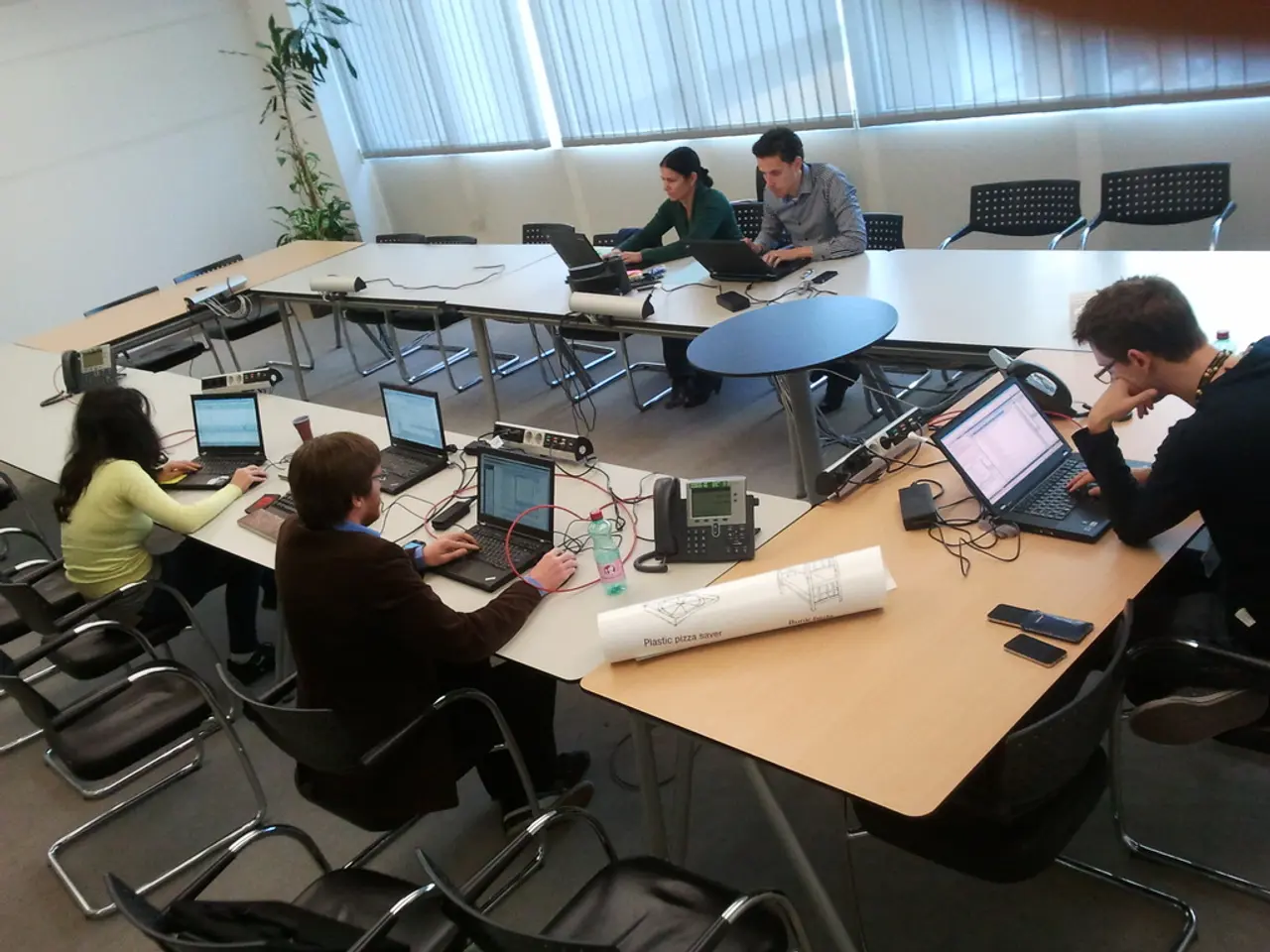Study reveals home office takeover: traditional office space now serving as botanical sanctuary for plants and wayward interns?
In recent developments, Federal Chancellor Friedrich Merz's stance on productivity and working hours in Germany has become a topic of significant debate, particularly in relation to calls for a four-day workweek.
## Arguments for Increased Productivity and Hours
Chancellor Merz and his government argue that increasing productivity and extending working hours are crucial for reviving Germany’s economic growth and maintaining its competitiveness. The Organisation for Economic Co-operation and Development (OECD) has highlighted the need for structural reforms, reducing administrative burdens, and addressing skilled labor shortages to boost business dynamism and productivity[1].
With rising pressures from an aging population and fiscal sustainability concerns, Merz advocates for policies that encourage longer working lives, including phasing out early retirement incentives and improving conditions for older workers to stay in the workforce[1]. The government has also committed to major defense and infrastructure investments, which require a robust workforce and higher output to meet ambitious national goals[4].
## Implications for the Four-Day Workweek and Work-Life Balance
In response to these arguments, Chancellor Merz's government has proposed increasing the standard weekly working hours to 40, moving away from flexible or reduced-hour arrangements and directly challenging the concept of a four-day workweek[3]. Critics argue that this could undermine work-life balance, employee well-being, and mental health, potentially increasing burnout and reducing overall job satisfaction.
Opponents of increased hours note that flexible working arrangements, like the four-day week, are seen as a way to attract skilled workers and foster innovation. Streamlining regulatory processes and supporting digital transformation—as also emphasized by the OECD—could be more effective than simply extending hours[1][2].
## Broader Policy Context
The Merz government is also pursuing tax reductions and regulatory simplification to make Germany more business-friendly, which may offset some negative perceptions of increased working hours[2]. However, the debate is situated at the intersection of economic pragmatism and social policy, as Merz’s focus on productivity and longer hours risks alienating workers and organizations advocating for greater flexibility and work-life integration.
## Conclusion
Chancellor Merz’s push for increased productivity and longer working hours is driven by economic and demographic imperatives, but it faces resistance due to concerns about work-life balance and the appeal of flexible working arrangements like the four-day workweek. The challenge lies in balancing productivity gains with employee well-being and the need for innovation in a rapidly changing global economy[1][3][2].
References: [1] OECD (2021). Germany at a Glance 2021: OECD Indicators. Retrieved from https://doi.org/10.1787/germany-glance-2021-en [2] The Local Germany (2021). Merkel's government plans to cut red tape for businesses. Retrieved from https://www.thelocal.de/20210511/merkels-government-plans-to-cut-red-tape-for-businesses [3] Reuters (2021). Germany to propose 40-hour work week, ending flexible arrangements. Retrieved from https://www.reuters.com/world/europe/germany-propose-40-hour-work-week-ending-flexible-arrangements-2021-05-11/ [4] The Guardian (2021). Germany to boost defence spending amid tensions with Russia. Retrieved from https://www.theguardian.com/world/2021/may/12/germany-to-boost-defence-spending-amid-tensions-with-russia
- The science of productivity and workplace-wellness is crucial in understanding the impacts of extended working hours, as advocated by Chancellor Merz, on the health-and-wellness of workers in Germany.
- Policy-and-legislation changes, such as those proposed by the Merz government, on working hours need to take into account the role of flexible work arrangements, like the four-day workweek, in delivering health-and-wellness benefits, attracting skilled labor, and fueling innovation.
- In the broader context of general-news—including fiscally-sustainable policies, defense investments, and international politics—the debate surrounding productivity and working hours in Germany highlights the need for a comprehensive approach that considers both economic growth and employee well-being.




